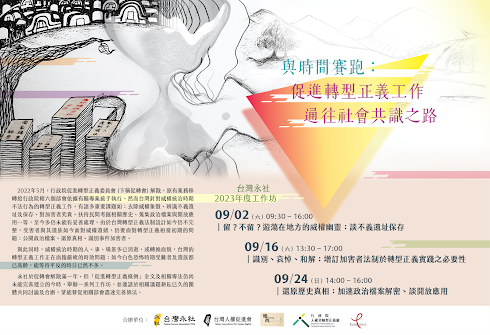Wu Ching-chin 吳景欽
(Wu Ching-chin is an associate professor, chair of Aletheia University’s law department and director of Taiwan Forever Association)
(作者為真理大學法律系副教授兼系主任、永社理事)
Translated by Perry Svensson
TAIPEI TIMES / Editorials 2015.08.10
http://www.taipeitimes.com/News/editorials/archives/2015/08/10/2003624985
A student participating in the protests against changes to high-school curriculum guidelines was visited by a police officer at his home. This raises questions about the purpose of such a visit as the student suspects he is under police surveillance. This controversy highlights another issue: Is there a legal foundation for the police practice of collecting evidence by following a person?
In the past, it was generally accepted that what a person says or does in public does not fall under the right to privacy, and that no legal justification was required for the police to collect information in public settings. However, according to Constitutional Interpretation No. 689, “Article 89, paragraph 2 of the Social Order Maintenance Act (社會秩序維護法) aims to protect a person’s freedom of movement, freedom from bodily and mental harms, freedom from intrusion with reasonable expectation in the public space and the right to autonomous control of personal information, and to punish a stalking behavior which has been urged to stop yet continues without any legitimate reason.”
The same paragraph says that “stalking another person without justifiable reasons despite having been dissuaded” is “punishable by a fine of not more than NT$3,000 or a reprimand.”
Based on these texts, a police officer who follows or collects information about a person at a public venue is breaching basic individual rights and therefore requires authorization in accordance with Article 23 of the Constitution.
The legal basis for surveillance is outlined in Article 11 of the Police Power Exercise Act (警察職權行使法), which says that if the police deem it necessary to prevent a crime, they may, after obtaining permission in writing from the chief of police, rely on visual observation or technical equipment to observe and gather material regarding a suspect’s actions and daily activities that would not be expected to fall under the right to privacy if the person in question is believed, on the basis of sufficient facts, to be likely to commit a crime that is punishable by at least five years’ imprisonment or is involved in organized crime.
This means that surveillance must be intended to prevent a crime. If it is applied to a student involved in protests against curriculum changes after the activity has ended, that is clearly going beyond what the law allows.
Furthermore, the offenses committed by the students who entered the Ministry of Education building are all punishable by prison terms of three years or less. If the police follow or shadow the protesters, that means they equate the anti-curriculum protesters to criminals who require the strictest possible surveillance. This is just absurd.
Since surveillance is regulated by the Police Power Exercise Act rather than the Code of Criminal Procedure (刑事訴訟法), if the police use this method, they can avoid monitoring by prosecutors and judges. That would make it difficult to guarantee that police would not gather information on members of the public for trivial reasons, which could be intimidating and threatening.
This is why the nation should take heed of Section 163f of the German Code of Criminal Procedure, which says that surveillance “may be ordered only where other means of establishing the facts or determining the perpetrator’s whereabouts would offer much less prospect of success or be much more difficult.”
As for the period of validity for a surveillance order, it should not be one year as it is now, but should be restricted to 24 or 48 hours. If this is not the case, it will be difficult to prevent police abuse from constantly reoccurring.





